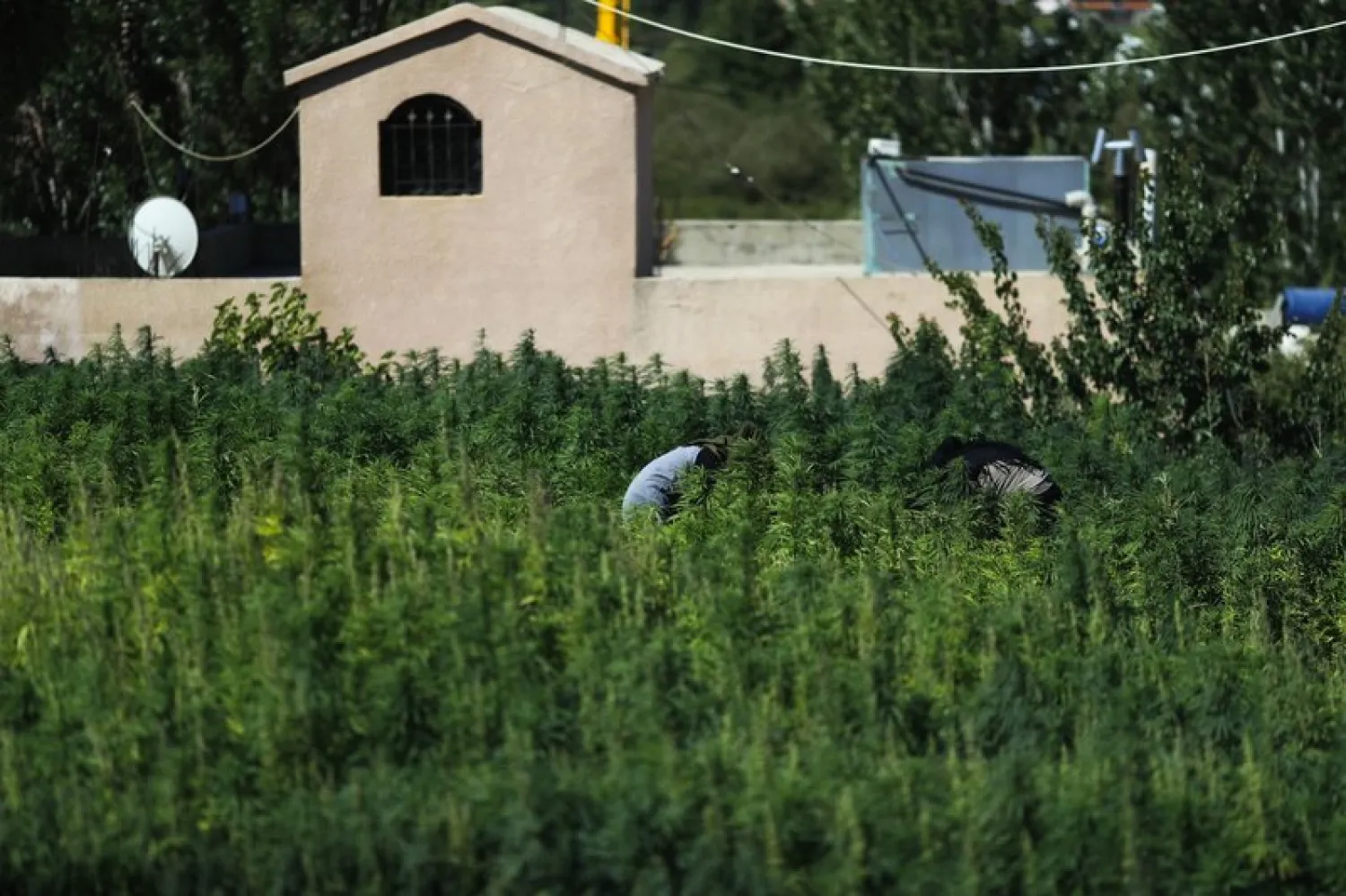Residents of Lebanon's Baalbek-Hermel are cautious when they talk to the media, whether they are from the Hezbollah party and Amal Movement, or even neutral people who only mind their own affairs and avoid political concerns.
A very rare number of those interviewed by Asharq Al-Awsat agreed to reveal their true identity. Censorship is a golden rule. The majority emphasizes the words, “on condition of anonymity”, when they talk about the reality of this region which has been neglected by official authorities since Lebanon’s independence in 1943. The area is a no-law zone, and is classified as Hezbollah’s “resistance tank”.
The outcome of the field tour leads to the conclusion that the ruling methods are the same: imposition of dues in Baalbek or Arsal, kidnapping for ransom, settling scores with those whose arrest threatens the “safety” of the area or those who rebel against the “resistance”, in addition to many more means that further fortify the no-law zone.
Asharq Al-Awsat’s tour also showed the striking neglect and deprivation in the area, in terms of water infrastructure, electricity, roads, etc., compared to other regions in Lebanon.
Weapons that are not visible in the streets are seen in densely populated villages, whether for the security of certain figures or for other personalities who are well-known to the residents, most of whom are said to be senior drug traffickers.
This season marks the beginning of harvest in the area’s large cannabis fields. It is, therefore, normal to see a mother and her children harvest the crop, taking the leaves from their trunks and cutting them with knives, indifferent to passers-by. But beware of getting too close or staring with curiosity. Usually, the cannabis is for export and not for domestic consumption. The people of Baalbek-Hermel are not addicted to cannabis. The use of narcotic pills is present, but it remains insignificant compared to in urban areas, especially in Beirut.
Some argue that legalizing cannabis will go against the interests of big dealers, who are afraid that supply will surpass the demand and prices will fall.
Lack of trust in the state is a common sentiment among the residents. However, the distinction between the state and Hezbollah is subjective. Those who support the party insist that it is their only salvation that compensates for the absence of any legal authority. Hezbollah provides fixed salaries for about 20 percent of the Baalbek-Hermel population and supports medical, social and educational institutions.
War in Syria was a source of income for many families. But it is worth mentioning that a large number of part-time fighters from Lebanon returned to their homes last month. They now receive half a salary and stay in their homes until they are needed again.
Many do not support Hezbollah. Although they are “elite” fighters, they are unable to achieve the change they hope for. They believe that the party has become a “micro-state”, a local regime that benefits from the total absence of the Lebanese state. The talk about the decline of the dominance of the Shiite duo (of Hezbollah and Amal) is seen by the majority as a distant dream: the May parliamentary elections did not produce the desired change.
A senior figure opposed to Hezbollah speaks of indiscriminate crimes and the infiltration of clans and many more... He even tells about a man “disciplining” his brother who tried to extort the party.
Iran is also strongly present through photos of its spiritual leader, Ali Khamenei, or through blue boards that resemble village nameplates, filling the corners along the roads in Hermel and carrying the words: “The Iranian people in the service of the Lebanese people.”









